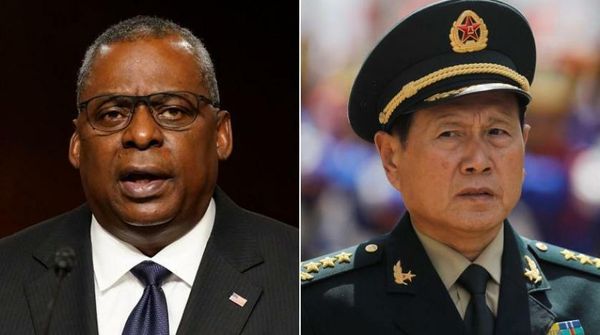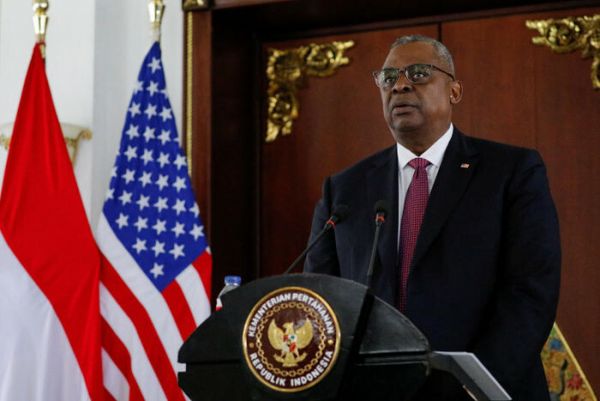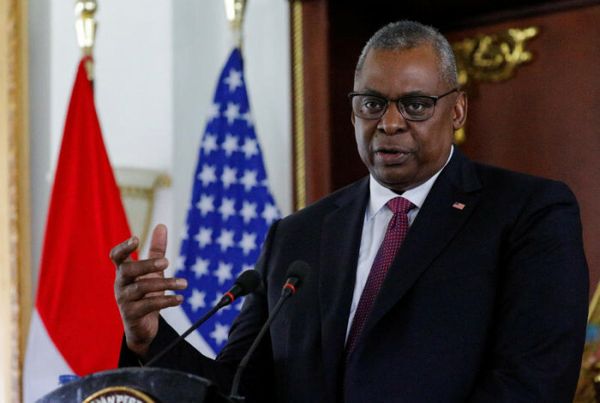
Siem Reap (Cambodia) (AFP) - US Defense Secretary Lloyd Austin met his Chinese counterpart Wei Fenghe in Cambodia on Tuesday, with both sides describing the talks as productive without backing away from their core positions.
The rival powers have clashed over a host of issues including Taiwan, security and human rights, but there have been attempts to lower the temperature since a rare summit between the leaders of both countries last week.
US President Joe Biden and Chinese leader Xi Jinping tried to cool the rhetoric but the differences were clear -- and the exchange between their defence chiefs was similar.
A senior US defence official said the talks between Austin and Wei on the sidelines of a conference of defence ministers in Siem Reap were "productive" and "professional".
"Both sides agreed that it's important that our countries work together to ensure that competition does not veer into conflict", but "competition remains the defining feature of the relationship", the official told journalists.
Austin sought the "reopening of a number of military-to-military dialogues and mechanisms to help manage that competition responsibly", the official added.
That was a reference to procedures and exchanges that were scrapped after US House Speaker Nancy Pelosi visited Taiwan in August despite furious warnings and threats from Beijing.
The US official said Austin and Wei had a "lengthy exchange" on Taiwan during the meeting, which lasted for an hour and a half.
A Chinese defence ministry spokesman described the meeting as "sincere, in-depth, practical and constructive".
"Both sides acknowledged that both militaries should earnestly implement the important consensus reached by both heads of state, maintain communication and contact, strengthen crisis management, and work hard to uphold regional peace and stability," the spokesman said.
"China attaches importance to developing bilateral military relations, but the US must respect China's core interests."
Red line
China claims Taiwan is a part of its territory to be taken one day, by force if necessary.
Wei said in the meeting that Taiwan is a red line for China, the spokesman said.
"Taiwan is China's Taiwan, it is a matter to be resolved by the Chinese people alone, and no external forces have the right to interfere."
Beijing lashes out at any diplomatic action that might lend Taiwan legitimacy and has responded with growing anger to visits by Western officials and politicians.
It reacted to Pelosi's Taiwan visit with its largest and most aggressive exercises around the island since the 1990s.
Austin told Wei that US policy towards Taiwan has not changed and that Washington still opposes unilateral changes to the status quo on the island.
Russia, North Korea
Austin and Wei also discussed other issues including Russia's invasion of Ukraine and North Korea, according to a readout by Pentagon Press Secretary Brigadier General Pat Ryder.
"Secretary Austin discussed Russia's unprovoked war against Ukraine and underscored how both the United States and (China) oppose the use of nuclear weapons or threats to use them," Ryder said.
Austin also expressed concern about "increasingly dangerous" behaviour by Chinese warplanes in the Asia-Pacific region, the readout added.
Austin called on China -- Pyongyang's main diplomatic backer -- to "fully enforce" UN Security Council resolutions against North Korea over its weapons programmes.
The defence chiefs' meeting followed a brief exchange between Xi and US Vice President Kamala Harris at an Asia-Pacific summit in Bangkok
That was followed by a meeting between Xi and US Vice President Kamala Harris at an Asia-Pacific summit in Bangkok on Saturday.










